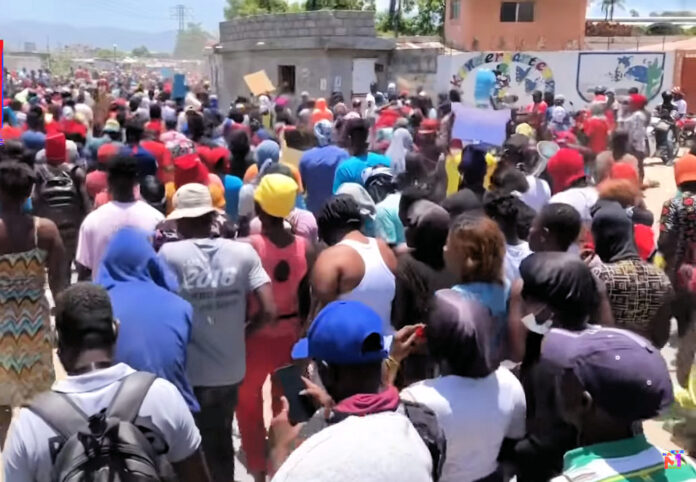As we go to press, we have learned that a squad of mercenaries, arriving in nine brand-new Nissan Patrol vehicles, arrived at the home of de facto president Jovenel Moïse in the mountain heights of Pèlerin in the early morning today and shot him dead. His wife, Martine, was wounded and is in stable but critical state in a Florida hospital, to which she was flown. The killers had knowledge of the house layout, suggesting they had an inside accomplice. The scale and sophistication of the operation suggest a well-financed and well-planned operation, not a spontaneous one.
(Français)
Last week was filled with terror, trauma, and tumult in Haiti, a nation which already has been shaken by all three.
It began on the afternoon of Tue., Jun. 29, 2021, when Guerby Geffrard, the spokesman of the police union SPNH-17, was shot by two men on a motorcycle near the teeming intersection of Delmas 32 in Port-au-Prince. He was taken to Bernard Mevs Hospital, but he died there from his wounds. (In early May, a rumor circulated that Geffrard had been assassinated, but then he turned up alive at a radio station a few days later.)
Later that same evening around 11 p.m., armed gunmen killed at least 15 people in the area of Delmas 32. Leaving that area, the men on three motorcycles encountered and shot to death well-known women’s rights activist and journalist Marie Antoinette “Netty” Duclaire and Radio Télé Vision 2000 journalist Diego Charles. Duclaire was shot seven times behind the wheel of her car, while a few feet away, Charles died from two bullets in front of his home’s gate on Rue Acacia in the Christ-Roi neighborhood.
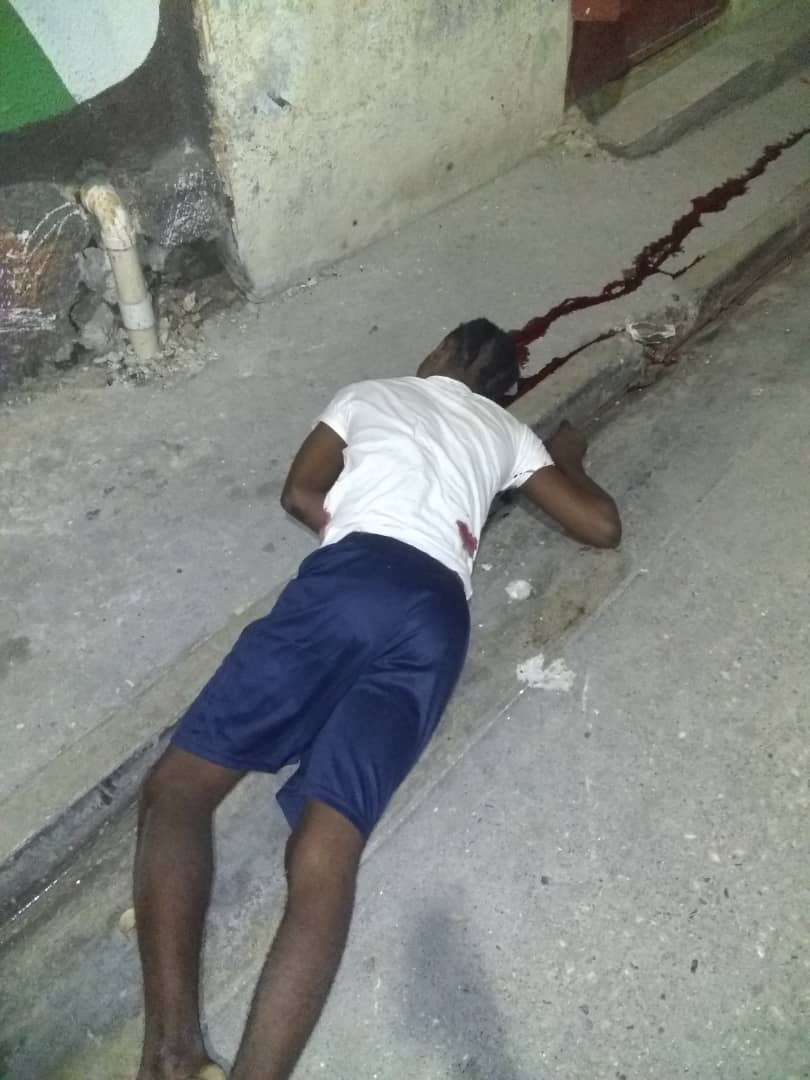
The next day, Haitian National Police (PNH) chief Léon Charles and interim Prime Minister Claude Joseph stated that the killing spree was the work of Fantôme 509, a shadowy paramilitary organization of current and former cops which has carried out jailbreaks, burned stores and vehicles, and exchanged fire with PNH units over the past year.
In a Jul. 1 press conference, Joseph called the killings “a terrorist attack,” while Charles claimed that “some of the [Fantôme 509] assailants are already identified.”
Nonetheless, also on Jul. 1, the National Human Rights Defense Network (RNDDH), headed by Pierre Espérance, issued a four-page press release which claimed that “according to certain residents of Delmas 32… the individuals implicated in the organization and perpetration of these attacks were part of the Base Krache Dife [Spit Fire Gang],” which is part of the Revolutionary Forces of the G-9 Family and Allies (FRG-9), an alliance of poor neighborhood vigilance brigades led by Jimmy “Barbecue” Cherizier. (Espérance called PNH chief Charles’ declarations blaming Fantôme 509 “hasty and irresponsible.”)
Ironically, the previous day, Jun. 30, Cherizier had given a press conference to call for peace and “calm among everyone implicated in the armed confrontations in the large poor neighborhoods.” In early June, a year-long truce between armed gangs was broken when those of Grand Ravine and Village de Dieu (provided with money from Haiti’s opposition, according to a highly placed international security source) attacked that of Ti Bois, a FRG-9 member. That conflict touched off neighborhood battles across the capital.
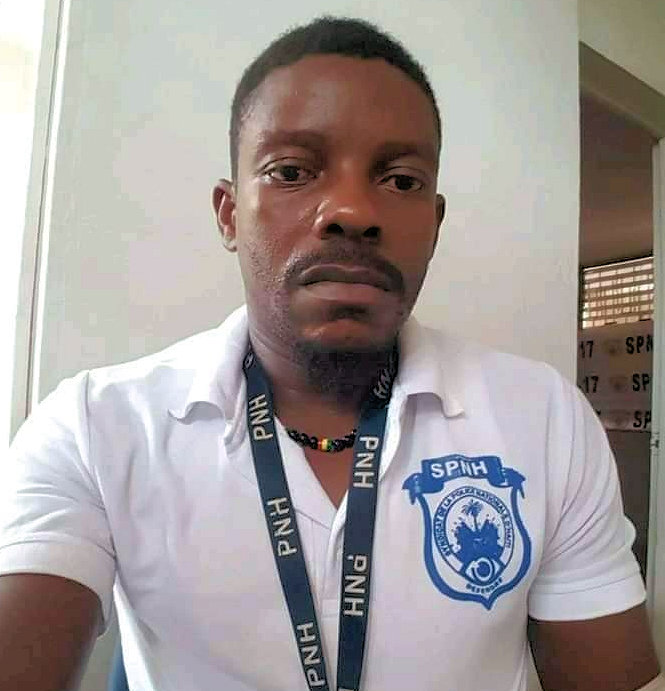
“The moment has come for us to put our forces together to overturn this system which has divided us, which has put weapons in our hands, for us to struggle against each other, so they can defend their interests,” Cherizier said. “I continue to extend my hand to all the ghettos, so we stop fighting among each other but fight against those people who have put guns in our hands. We know there are a lot of [the bourgeoisie and politicians] have no interest in seeing this country have stability. We have to open our eyes. We have to recognize our true enemies. All the ghettos are living the same reality. We have to unite our forces to liberate this nation from the claws of these birds of prey.”
Cherizier then announced a FRG-9 demonstration for Jul. 1. “In tomorrow’s demonstration, we will continue to demand our rights to have food, good schools, good houses to live in, and for us and for our children in 10 or 20 years not to have to handle weapons the same way many of us have had to do today.”
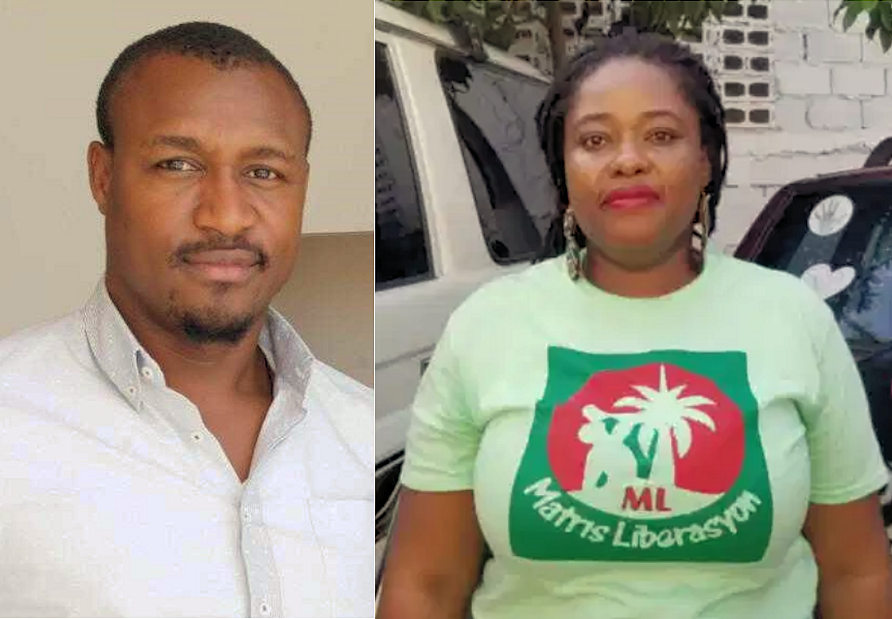
Many hundreds of mostly La Saline residents turned out for the lively demonstration which marched to Wharf Jérémie, then past Aviation (former Bowen Airfield), to Station Gonaïves (near the old HASCO sugar refinery), where it was turned back by police firing tear-gas. The demonstrators then marched to the Croix des Bossales market, then returned to La Saline. Chants of “we are hungry,” “hungry people don’t play,” and “Jovenel must go” were led by Cherizier during the rally in La Saline.
“Today, the government of [de facto President] Jovenel Moïse has failed,” Cherizier declared during the march. “He has failed to give the people security, food, schools, and healthcare. Today they cannot force us to go into an election under a government which has no legitimacy. By the same token, we are not going to march behind a rotten opposition, just as we have a rotten, corrupt bourgeoisie. Today, it’s the whole system which has failed… Jovenel has to go by any means necessary.”
Despite the size, success, and message of the FRG-9’s demonstration, Haiti’s traditional opposition dismissed it as government-sponsored. The demonstration was a “diversion” to distract the nation’s attention from the Delmas 32 massacre, said André Michel, leader of the Popular and Democratic Sector.
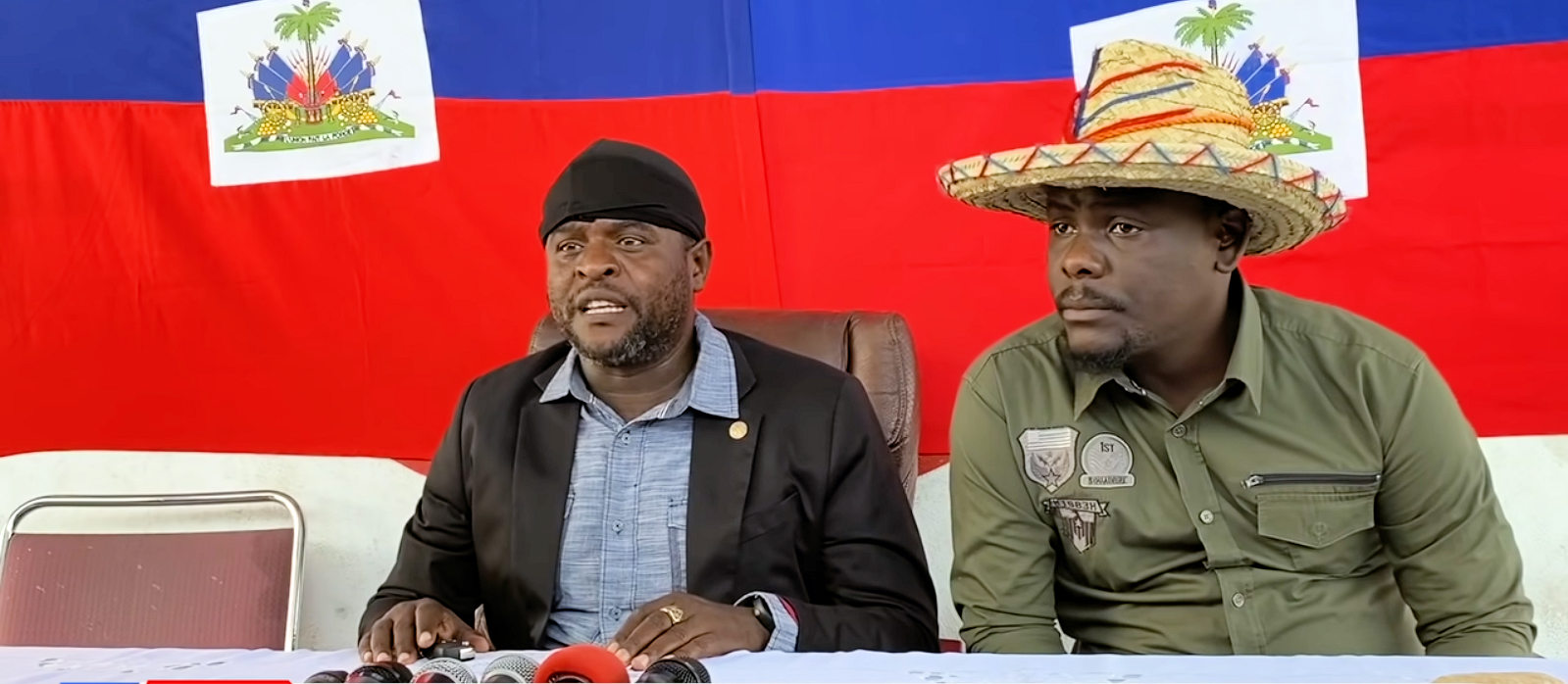
On Jul. 2, Cherizier held a press conference to analyze the Delmas 32 events and respond to both Michel and Espérance.
“We are revolutionaries,” Cherizier said. “What happened in Delmas 32, we had nothing to do with it. If we had done it, we would have taken responsibility for it.”
Cherizier said that he regretted the death of Guerby Geffrard, who “was asking for a better life for police officers.”
But then “in response to what happened, his partisans acted,” Cherizier continued. “When you react with anger and emotion, that can cause a lot of damage, so a militant died, and a journalist died. Maybe if those two people didn’t die, the Delmas 32 massacre might have gone unnoticed, like many massacres in the poor neighborhoods.”
Then he turned to the RNDDH.
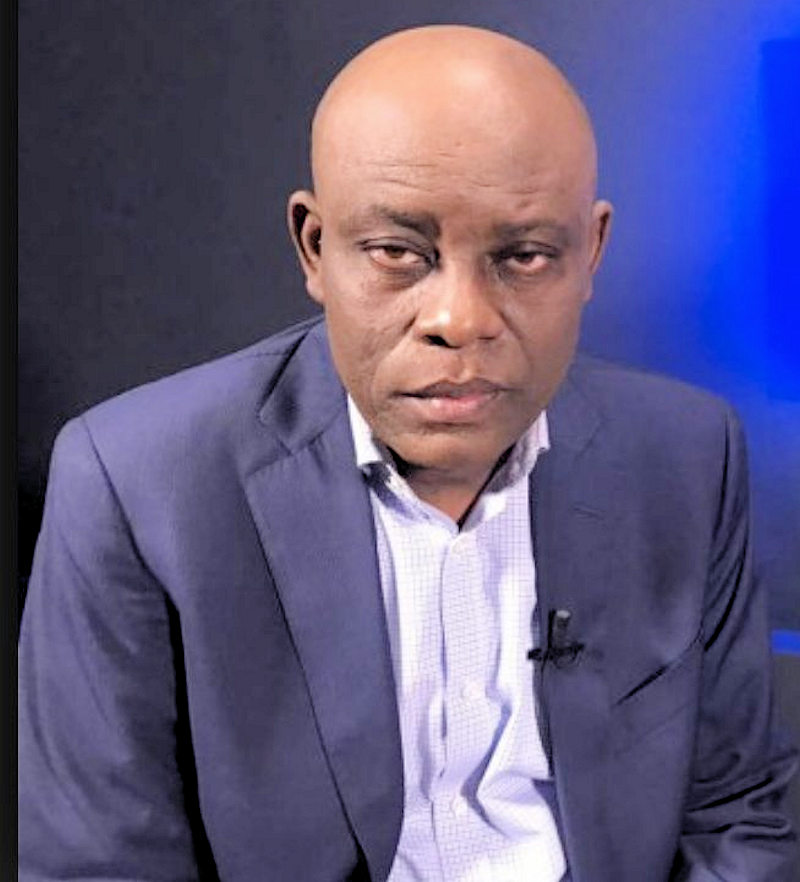
“Pierre Espérance, you are lying,” he said. “You are lying when you say that the Baz Krache Difè did the massacre in Delmas 32. The Baz Krache Difè didn’t have anything to do with the massacre in Delmas 32.” He called the RNDDH “Pierre Espérance’s political party” and a “garbage human rights organization.”
“Anybody with common sense will understand what happened in Delmas 32,” Cherizier said later in response to a question. “Guerby Geffrard said that I, Jimmy Cherizier, in an armored car, used to fire at him. He called the G-9 bandits, gangs, thieves. Explain to me what interest we would have to go up to Delmas 32 to carry out revenge for him. People who are lucid will see the absurdity of that logic. They are simply trying to blame it on us.”
Significantly, Cherizier, a former stellar policeman, also gave a warning to the PNH for tear-gassing the FRG-9 demonstration the day before.
“The police chose to fire tear-gas at us to break up the demonstration,” he said. “We make this appeal to the policemen, who are our brothers. We think that most police officers come from poor neighborhoods just like us. A rare few live in [wealthy bourgeois mountain enclaves like] Laboule, Pèlerin, or Thomassin. Most live among the masses of the people. When the people demonstrate, please avoid the abusive use of force. Yesterday, you spoke of legitimate violence. If you continue to carry out violence against the people, the people have the right to organize to carry out violence in response.”
As “responsible leaders,” Cherizier said the FRG-9 chose to avoid a confrontation with the police and “decided to peacefully lead the people back to La Saline and have everyone go home.”
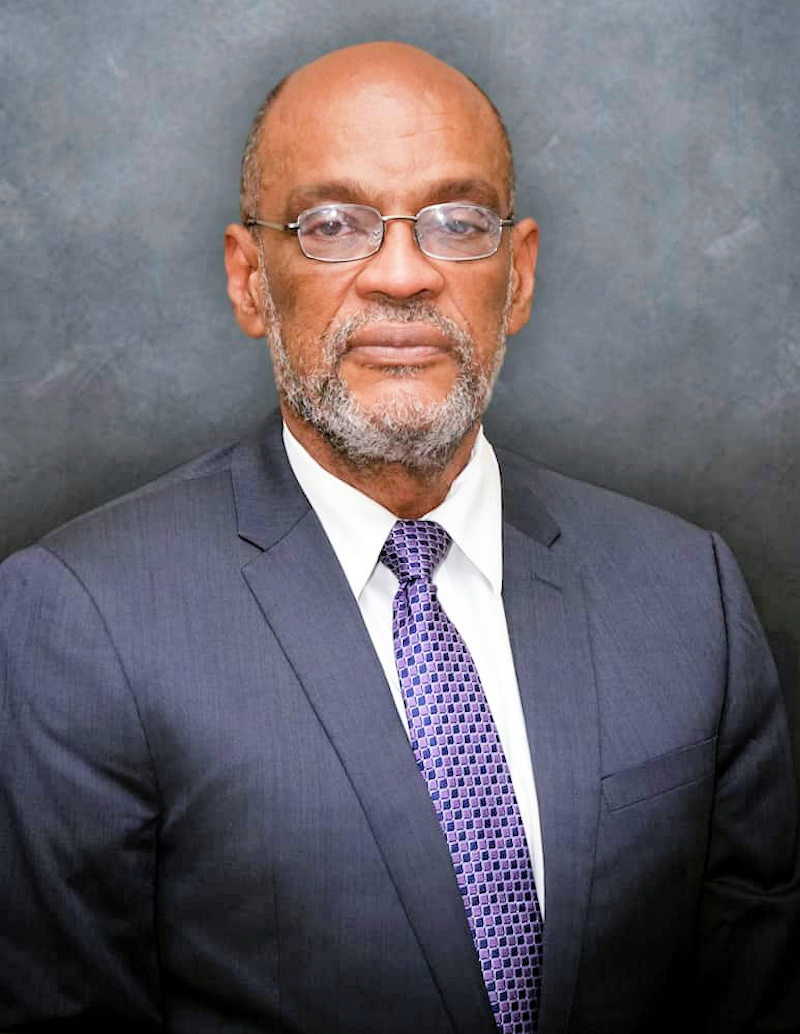
“We have to develop our strategy to continue our struggle, because this struggle will be long, and we have to win our country’s liberation,” Cherizier concluded.
Meanwhile, on Mon., Jul. 5, Jovenel Moïse appointed his sixth prime minister, Dr. Ariel Henry, 71, who has served in various posts under previous presidents in the Health, Interior, Labor, and Social Affairs ministries. Although once allied with President René Préval, most analysts view him as close to Washington for his leading role in the Democratic Convergence, the political front which worked for President Jean-Bertrand Aristide’s Feb. 29, 2004 overthrow, and then his appointment to the “Council of the Wise,” which facilitated the transition to a de facto government after the coup.
The Moïse government at the same time issued a decree wiping away the décharge requirements (the legal clearing) of all former prime ministers since 1991. Anti-corruption activists are up in arms about the wholesale slate wiping, given the patent, proven corruption, waste, and embezzlement which surrounded the distribution of billions of dollars of relief funds after the 2010 earthquake and about $2 billion in disbursements from the PetroCaribe Fund (2008-2018), made possible by a long-term loan by Venezuela.

